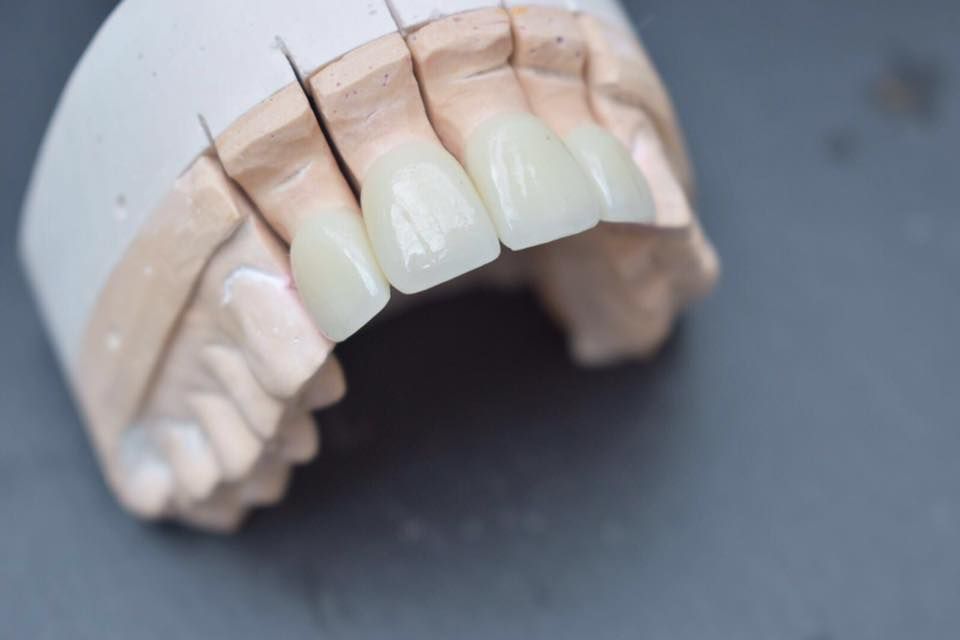Emax veneers have become one of the most popular materials in the field of dental aesthetics and restorative treatments in recent years. Emax, known for its ability to provide results closest to natural teeth, high light transmittance, and aesthetic success, is particularly prominent in anterior denture aesthetics. However, it may not be the right solution for every patient. In this article, we provide a detailed overview of who is suitable for Emax veneers, in which situations they should be considered, and in which circumstances alternatives should be considered.
What is Emax Coating and What Advantages Does It Offer?
Emax, is a highly aesthetic and durable dental veneer made from lithium disilicate glass-ceramic. Because it's metal-free, it eliminates gray reflections at the gumline, resulting in a more natural smile.
Advantages:
- High aesthetic success: Transmits light similar to tooth enamel.
- Biocompatible structure: It is compatible with the gums very well.
- Natural look: It integrates with the shape, color and texture of the tooth.
- Long life: It can provide a lifespan of 10 years or more in suitable patients.
Thanks to these features, Emax veneers are very popular among individuals with aesthetic sensitivity.
In Which Situations Should Emax Coating Be Preferred?
While Emax veneers offer superior aesthetics, they may not be suitable for every clinical situation. They are generally ideal for anterior teeth and and aesthetic restorations .
Main Situations Where Emax Coating Is Preferred:
- Front Tooth Aesthetics: It is the first choice in aesthetic applications such as smile design, coloration, deformity or renewal of old fillings.
- Laminate Veneer Applications: Thanks to its thin structure, it allows application with minimum abrasion on the teeth.
- Need for a Single Tooth Crown: Suitable for aesthetic restoration of broken, cracked or weakened teeth after fillings on the front or side teeth.
- Discolored Teeth: It is the ideal solution for covering stubborn discolorations that cannot be removed by whitening.
- Gaps Between Teeth (Diastema): It can be preferred to close the gaps between the teeth aesthetically.
- Dental IrregularitiesIt can also be used to correct minor irregularities as an alternative to orthodontic treatment.
If your tooth structure is not severely damaged and aesthetics are more important than durability, Emax crowns may be the best solution for you.
Who is Not Suitable for Emax Veneers?
While they offer excellent aesthetic results, Emax veneers are not suitable for every patient. For individuals with high chewing forces, particularly in the posterior region, or those with excessive teeth grinding (bruxism), it may be safer to choose a different material.
Situations in which Emax Coating is not recommended:
- Teeth Clenching or Grinding HabitLithium disilicate ceramics may become brittle after a certain amount of impact.
- Multi-Member Bridge RequirementEmax is not recommended for long bridges due to its limited durability.
- Excessive Substance LossIf a large portion of the tooth is missing, Emax may not adhere sufficiently.
- Heavy Chewing Pressure on Back TeethMore durable alternatives such as zirconium should be preferred, especially for molars.
In such cases, your physician may recommend alternative veneering materials such as zirconium or metal-supported porcelain.
Emax, known for its abilityto provide results closest to the appearance of natural teeth, is an aesthetically and biologically superior restorative solution. It provides ideal results, especially for individuals with high aesthetic expectations for front teeth, good gum health, and those who do not grind their teeth. However, each case is unique, and the most appropriate treatment option should be determined after a thorough examination and consultation with your dentist.
Emax veneers may be the right choice for you if you want to achieve a natural and healthy smile. However, long-lasting and successful results require appropriate patient selection, the right indication, and expert application.
This text is intended to provide general information. The appropriate treatment method for each patient may vary, and therefore, a dentist who is an expert in the field should be consulted. Before making any decision regarding dental health, it is of great importance that you have a detailed examination and consultation with your physician. These articles are for informational purposes only and are not intended to replace professional medical advice.



 by
by